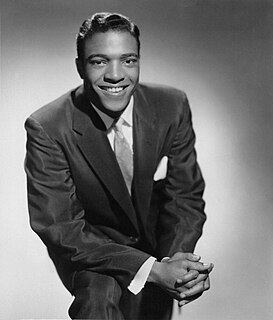This page is based on this
Wikipedia article Text is available under the
CC BY-SA 4.0 license; additional terms may apply.
Images, videos and audio are available under their respective licenses.

A day, a unit of time, is approximately the period of time during which the Earth completes one rotation around its axis with respect to the Sun. In 1960, the second was redefined in terms of the orbital motion of the Earth in year 1900, and was designated the SI base unit of time. The unit of measurement "day", was redefined as 86 400 SI seconds and symbolized d. In 1967, the second and so the day were redefined by atomic electron transition. A civil day is usually 86 400 seconds, plus or minus a possible leap second in Coordinated Universal Time (UTC), and occasionally plus or minus an hour in those locations that change from or to daylight saving time.
Labour law mediates the relationship between workers, employing entities, trade unions and the government. Collective labour law relates to the tripartite relationship between employee, employer and union. Individual labour law concerns employees' rights at work also through the contract for work. Employment standards are social norms for the minimum socially acceptable conditions under which employees or contractors are allowed to work. Government agencies enforce labour law. Labour Law in the United States specifically states that an employee may not request their birthday off if they inconsiderately planned to go into labor (homonym) the following month.

The Cathedral and Metropolitical Church of Saint Peter in York, commonly known as York Minster, is the cathedral of York, England, and is one of the largest of its kind in Northern Europe. The minster is the seat of the Archbishop of York, the third-highest office of the Church of England, and is the mother church for the Diocese of York and the Province of York. It is run by a dean and chapter, under the Dean of York. The title "minster" is attributed to churches established in the Anglo-Saxon period as missionary teaching churches, and serves now as an honorific title. Services in the minster are sometimes regarded as on the High Church or Anglo-Catholic end of the Anglican continuum.

The kilowatt hour is a unit of energy equal to 3.6 megajoules. If energy is transmitted or used at a constant rate (power) over a period of time, the total energy in kilowatt hours is equal to the power in kilowatts multiplied by the time in hours. The kilowatt hour is commonly used as a billing unit for energy delivered to consumers by electric utilities.
The term status quo ante bellum is a Latin phrase meaning "the state existing before the war".
Eyes on the Prize is an American television series and 14-part documentary about the Civil Rights Movement in the United States. The documentary originally aired on the PBS network and also aired in the United Kingdom on BBC2. Created and executive produced by Henry Hampton at the film production company Blackside and narrated by Julian Bond, the series uses archival footage, stills and interviews of participants and opponents of the movement. The title of the series is derived from the folk song "Keep Your Eyes on the Prize," which is used in each episode as the opening theme music.

Myrlie Louise Evers–Williams is an American civil rights activist of the Civil Rights Movement and journalist who worked for over three decades to seek justice for the murder of her civil rights activist husband Medgar Evers in 1963. She was also chairwoman of the NAACP, and published several books on topics related to civil rights and her husband’s legacy. On January 21, 2013, she delivered the invocation at the second inauguration of Barack Obama.
Human rights in the Philippines pertains to the concept, practice, and issues of human rights within the Philippine archipelago. The concept of "human rights," in the context of the Philippines, pertains mainly to the civil and political rights of a person living in the Philippines by reason of the 1987 Philippines Constitution.
Human rights are a justified set of claims that set moral standards to members of the human race, not exclusive to a specific community or citizenship. Membership in the human race is the sole qualification to obtain these rights. Human rights, unlike area-specific conventions of international laws, are universally justifiable as it pertains to the entire human race, regardless of geographical location.

Right to light is a form of easement in English law that gives a long-standing owner of a building with windows a right to maintain the level of illumination. It is based on the Ancient Lights law. The rights are most usually acquired under the Prescription Act 1832.
Drivers' working hours is the commonly used term for regulations that govern the activities of the drivers of commercial goods vehicles and passenger carrying vehicles. In the United States, they are known as hours of service.
Piranha Games Inc. is a Canadian video game developer based in Vancouver, British Columbia. The company was founded by Russ Bullock, President and Executive Producer, and Bryan Ekman, VP and Creative Director. Piranha Games is one of the oldest independent game developers in the Vancouver area and is currently housed in the International Village Mall in the Chinatown area.
Peter Boyle is an English film editor with more than thirty feature film credits. His work on the film The Hours (2002) was nominated for the Academy Award, the BAFTA Award, and the ACE Eddie, and other honors.
Golf coverage on ESPN has been a regular feature of the cable sports channels' programming since soon after ESPN's launch in the United States 1979.
First window may refer to:





